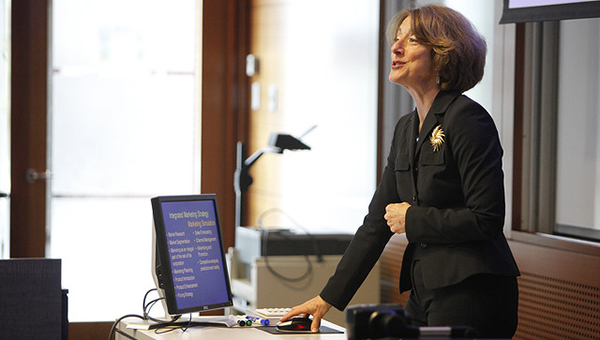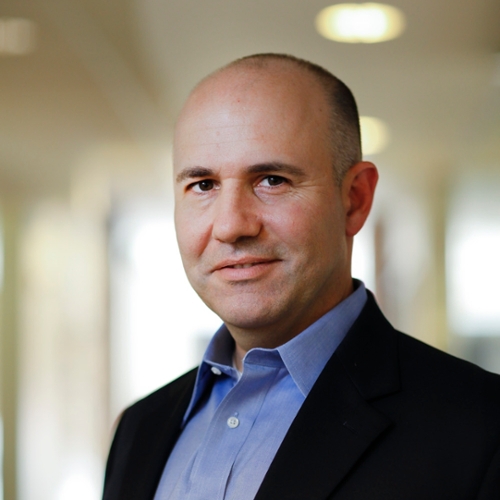
Grace Zimmerman has risen through the ranks of entrepreneurial ventures in nearly every type of sales and marketing position – all the way to the coveted role of founder. Her current role in academia is what she calls her “second career,” a shift that took place as a result of hard but necessary work-life balance decisions more than two decades ago. The MBA Program director is cited by alumni and students alike as an unparalleled influence at Brandeis International Business School. We sat down to learn more about the path to success for women in business from someone who’s been there.
I was a graduate of the 10th MBA class at Harvard Business School that had admitted women. We made up only 15% of the class. At the time, there weren’t a lot of women in business who had seen the type of success I was looking for. In my first job out of business school, I was the most senior female in the company despite being in an entry-level marketing position at a publicly traded company. It was hard to find a mentor and to break down gender stereotypes. I’m lucky to have come from a long line of strong, intelligent women and to have parents who never limited my horizons. I hope I’m doing that for my children and especially for my students, because having faith in yourself and having the courage to go for it is a big part of success.
Women can do everything they want to do. Of course, you have areas like Wall Street that are still male-dominated. Still, things are better than they were. What we’re seeing right now is that women’s careers are progressing, but not as fast as men’s in terms of promotions, titles and salary. If you look at the Fortune 1000, women are underrepresented in the executive suite and on boards, and as of 2014, still earn only 79 cents to the man’s dollar. At the same time, I think we’ve come a long way. I’m hopeful that millennial men and women will experience a different working environment.
Well, there are still men in my generation who, despite their self-perception and best intentions, aren’t truly equal minded. To some extent, there are industries and situations in which the men in leadership positions need to be helped to feel more comfortable choosing women. I think the balance between strength, capability, empathy and mentoring is what makes women particularly valuable in the marketplace. When companies don’t recognize that and think women should behave just like men, they inadvertently undermine the value that we can bring.
We are different, and viva la difference! At the same time, it’s not just one thing – we can’t be so simplistic to say it’s all on the men or all on us. In order to have real parity, we need to have the confidence to ask for the same positions, the same titles, the best compensation and to really advocate for ourselves. There’s no reason that we can’t demand and shouldn’t receive every bit as much as our male colleagues. Then of course, regardless of gender, you have to earn it.
Read Part 2 of Grace’s interview here.
Featured Stories
News Categories
@BrandeisBusiness Instagram
View this profile on InstagramBrandeis Intl. Business School (@brandeisbusiness) • Instagram photos and videos

December 11, 2018
Mastering the art of business writing — in a foreign language
October 5, 2018
Osler cites philosophers in shaping her views on exchange rates
October 31, 2016
Reinventing the feedback sandwich